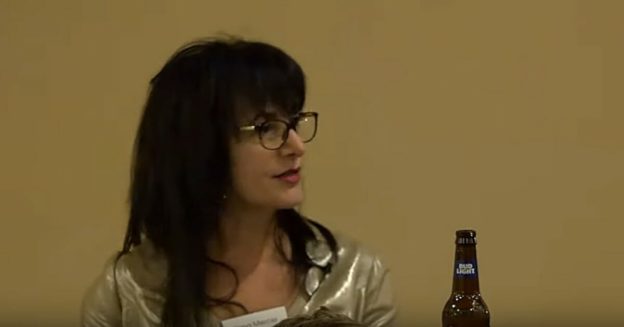NEW COLUMN IS “How Democracy Made Us Dumb.” It’s currently on WND.COM and The Unz Review.
An excerpt:
From the riffs of outrage coming from the Democrats and their demos over “our democracy” betrayed, infiltrated even destroyed—you’d never know that a rich vein of thinking in opposition to democracy runs through Western intellectual thought, and that those familiar with it would be tempted to say “good riddance.”
Voicing opposition to democracy is just not done in politically polite circles, conservative and liberal alike.
For this reason, the Mises Institute’s Circle in Seattle, an annual gathering, represented a break from the pack.
The Mises Institute is the foremost think tank working to advance free-market economics from the perspective of the Austrian School of Economics. It is devoted to peace, prosperity, and private property, implicit in which is the demotion of raw democracy, the state, and its welfare-warfare machine.
This year, amid presentations that explained “Why American Democracy Fails,” it fell to me to speak to “How Democracy Made Us Dumb.” (Oh yes! Reality on the ground was not candy-coated.)
Some of the wide-ranging observations I made about the dumbing down inherent in democracy were drawn from the Founding Fathers and the ancients.
A tenet of the American democracy is to deify youth and diminish adults. To counter that, I’ll start with the ancients.
The Athenian philosophers disdained democracy. Deeply so. They held that democracy “distrusts ability and has a reverence for numbers over knowledge.” (Will Durant, “The Story of Philosophy,” New York, New York, 1961, p. 10.)
Certainly, among the ancients who mattered, there was a keen contempt for “a mob-led, passion-ridden democracy.” The complaint among Athenians who occupied themselves with thinking and debating was that “there would be chaos where there is no thought,” and that “it was a base superstition that numbers give wisdom. On the contrary, it is universally seen that men in crowds are more foolish, violent and cruel than men separate and alone.” (p. 11)
Underground already then, because so subversive—anti-democratic thinking was the aristocratic gospel in Athens. Socrates (born in 470 B.C.) was the intellectual leader against democracy and for the even-then hated aristocratic philosophy. Socrates’ acolytes, young and brilliant, questioned the “specious replacement of the old virtues by unsocial intelligence.”
The proof of the foolish, violent and cruel nature of the crowds is that the crowds, not the judges, insisted on making Socrates the first martyr of philosophy. He drank the poison at the behest of the people.
No wonder Plato, Socrates’ most gifted student, harbored such scorn for democracy and hatred for the mob—so extreme that it led this controversial genius to resolve that democracy must be destroyed, to be replaced by his planned society; “the rule of the wisest and the best, who would have to be discovered and enabled.” …
READ THE REST. NEW COLUMN, “How Democracy Made Us Dumb,” is currently on WND.COM and The Unz Review.



 print
print